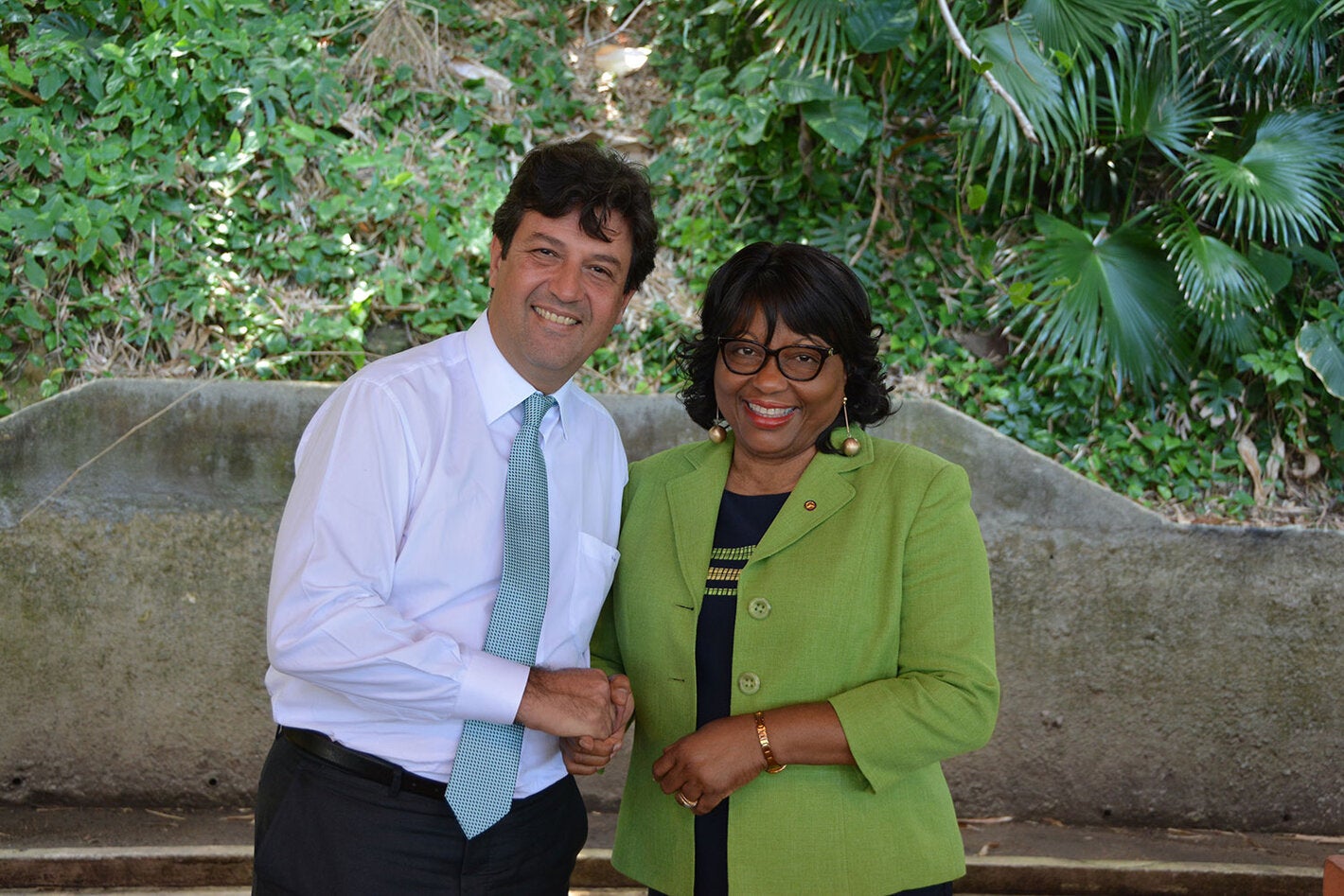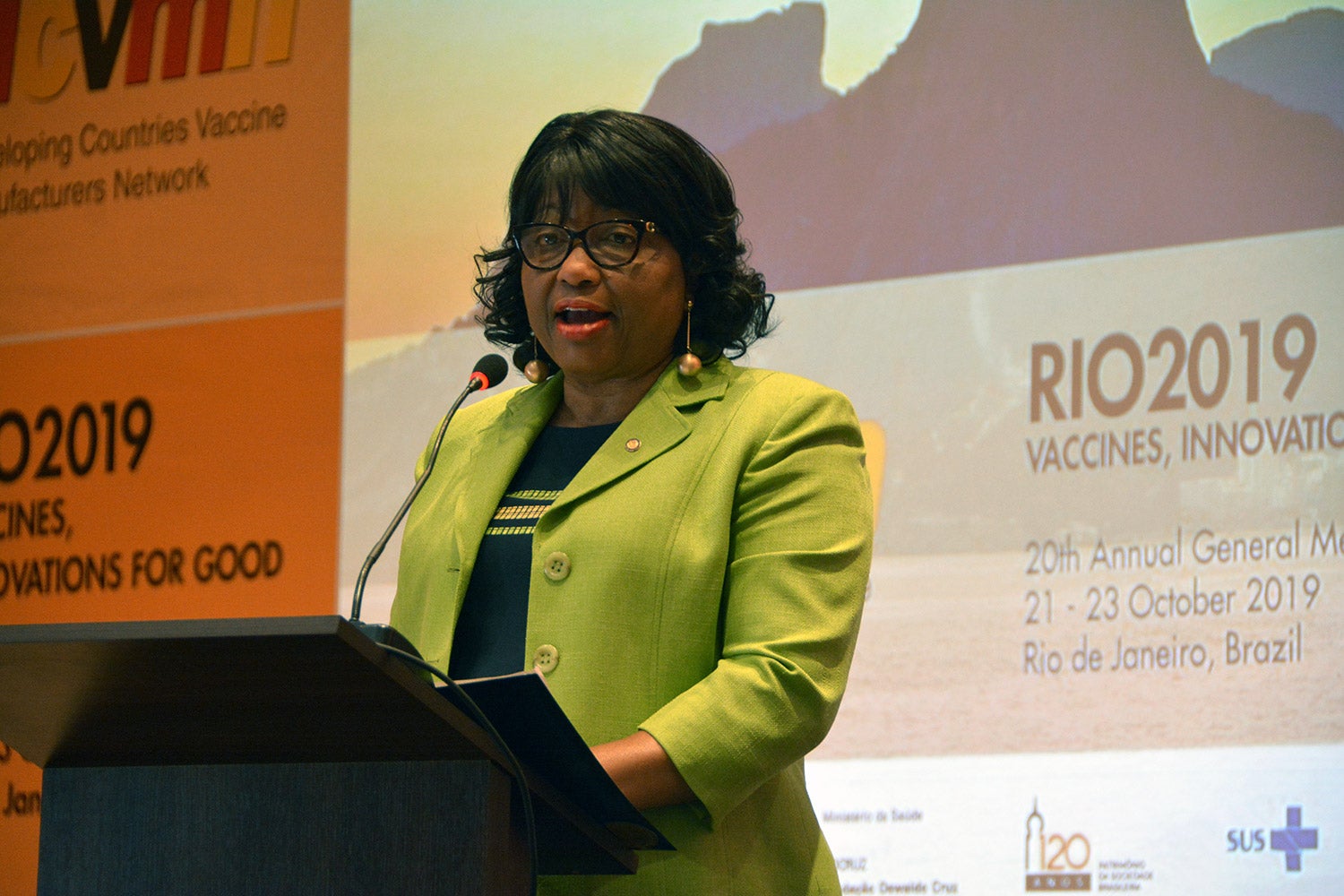
Rio de Janeiro, 22 October 2019 (PAHO/WHO)–The Director of the Pan American Health Organization (PAHO), Carissa F. Etienne, highlighted the achievements and challenges of vaccine production during the opening of the 20th General Meeting of the Developing Countries Vaccine Manufacturers Network (DCVMN), today, in the city of Rio de Janeiro.
“I see this Network as a global public good, a network of manufacturers and innovators that have assumed the principle of collective action and solidarity, to protect global health. The vaccines you produce protect and promote the health of millions in this Region (Americas), and globally”, she stated.
The PAHO Director also encouraged the network of producers to continue efforts to invest in new vaccines that have high quality and are affordable.
“And more importantly,” she added, “I urge you to ensure and protect the global supply of the more ‘traditional and well established’ vaccines that are becoming less attractive to produce commercially.”
Maurício Zuma, Director of the Instituto de Tecnologia em Imunobiológicos (Bio-Manguinhos/Fiocruz) and co-chair of the Network, said the meeting aims to share experiences and discuss capacities, financing, supplies, regulatory issues, alliances, partnerships, innovations, among other topics.
“Our vaccines have prevented the spread and export of several diseases and saved millions of lives each year. It makes us proud. But we are aware of our responsibility and we know that innovation is key to our survival in the long term,” he said.
President of the Oswaldo Cruz Foundation (Fiocruz) Nísia Trindade said that vaccination is a right. “In a context where market monopolization can make vaccines inaccessible to the majority of the population, it’s up to us to affirm vaccination as a public good and one of the main achievements for everyone's right to health and prevention,” she added.
The Minister of Health of Brazil, Luiz Henrique Mandetta, announced during the event that after three years of discontinuation of yellow fever vaccine exports, Brazil will resume its capacity to supply its domestic demand and provide vaccines to other countries. Between 2017 and 2018, the country had yellow fever outbreaks and suspended its vaccine exports, focusing all its production for the Brazilian population. “Another important step we are taking, which is in the final stages of modeling, is the construction of the Health Biotechnology Industrial Complex. It will be a multiple platform that can produce different types of vaccines, quickly responding to domestic needs”, said Mandetta.
During one of the panel discussions in the event, the Deputy Director of the Pan American Health Organization, Jarbas Barbosa, addressed the production scenario in the Americas and outlined the PAHO Revolving Fund, a procurement mechanism created to support governments in the purchase of immunobiologicals and strategic inputs. “The key components to ensuring access to vaccines are: accurate demand planning, timely availability of funds, efficient procurement mechanisms and a sustainable and affordable supply market”, he said.
Annual meeting
The Developing Countries Vaccine Manufactures Network (DCVMN) annual meeting runs until October 24, with the participation of experts from 14 countries. The event addresses topics such as technological advances, equitable access to vaccines around the world, regulatory issues and strategies, current industry challenges with an emphasis on developing countries, and partnership opportunities.
Other meeting participants include: the director-general of the World Health Organization (WHO), Tedros Adhanom Ghebreyesus, via a video statement; and members of Unicef, GAVI Alliance and Brazil's National Health Surveillance Agency (Anvisa).
Established in the year 2000, the DCVMN network currently includes 50 vaccine manufacturers in 17 countries and territories, producing and supplying over 40 different types of vaccines in several presentations, totaling around 200 products.




